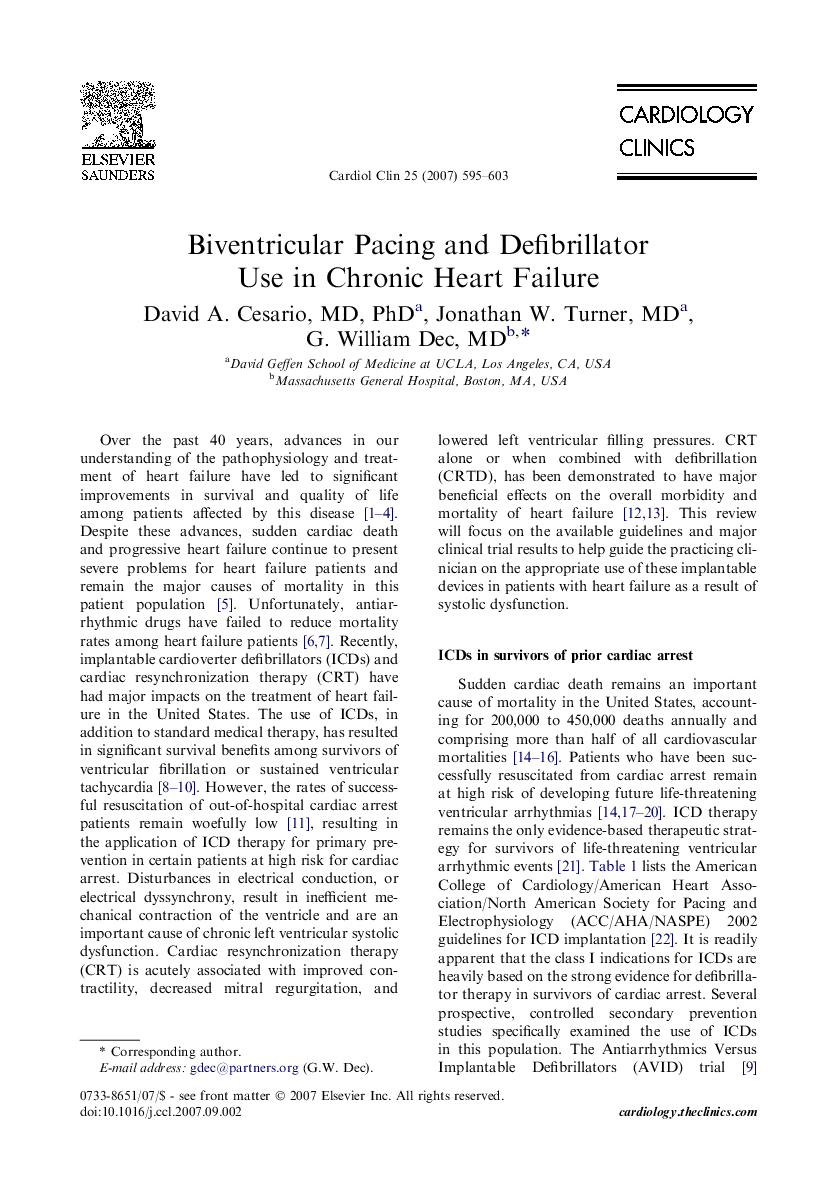| Article ID | Journal | Published Year | Pages | File Type |
|---|---|---|---|---|
| 2898528 | Cardiology Clinics | 2007 | 9 Pages |
Abstract
Since the 1970s when the implantable cardioverter defibrillator (ICD) was developed, multiple clinical trials have documented survival benefits in certain high-risk subsets of heart failure patients. Over the past decade, cardiac resynchronization therapy (CRT) emerged as an important therapy in carefully selected patients with ongoing symptoms despite optimized pharmacological therapy. ICDs should be considered first-line therapy for survivors of life-threatening ventricular arrhythmic events. Subsets of patients with both ischemic and nonischemic dilated cardiomyopathy appear to have a survival benefit from primary ICD therapy. CRT has resulted in substantial symptomatic improvement and survival benefits in a subgroup of chronic heart failure patients. CRT should be considered in heart failure patients undergoing ICD implantation who have evidence of ventricular dyssynchrony.
Related Topics
Health Sciences
Medicine and Dentistry
Cardiology and Cardiovascular Medicine
Authors
David A. MD, PhD, Jonathan W. MD, G. William MD,
